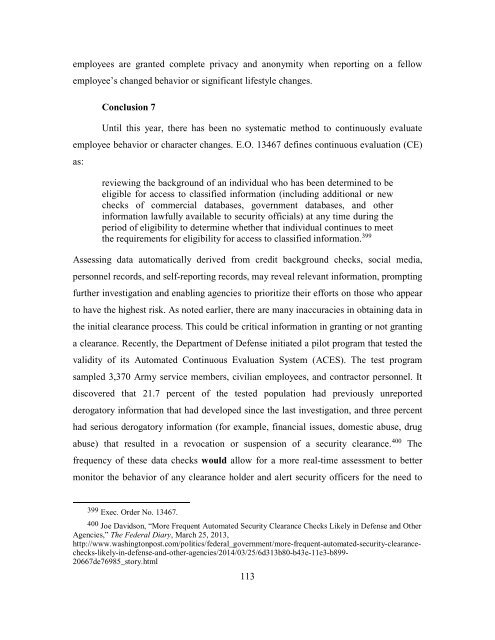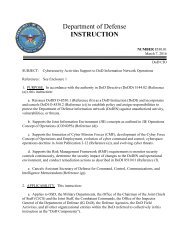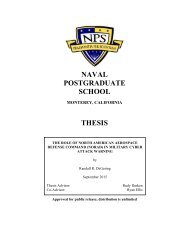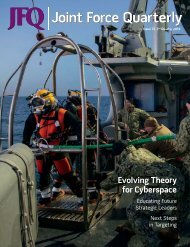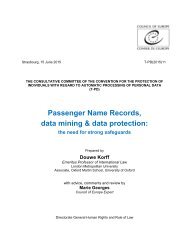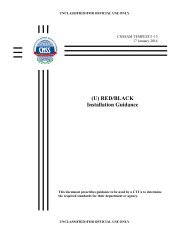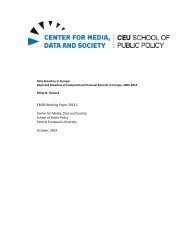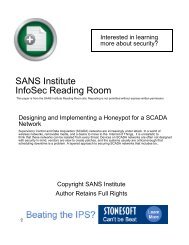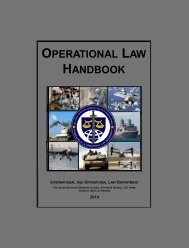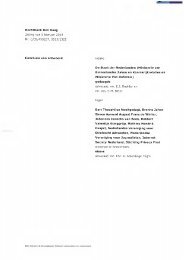SCHOOL THESIS
?view&did=768625
?view&did=768625
Create successful ePaper yourself
Turn your PDF publications into a flip-book with our unique Google optimized e-Paper software.
employees are granted complete privacy and anonymity when reporting on a fellow<br />
employee’s changed behavior or significant lifestyle changes.<br />
Conclusion 7<br />
Until this year, there has been no systematic method to continuously evaluate<br />
employee behavior or character changes. E.O. 13467 defines continuous evaluation (CE)<br />
as:<br />
reviewing the background of an individual who has been determined to be<br />
eligible for access to classified information (including additional or new<br />
checks of commercial databases, government databases, and other<br />
information lawfully available to security officials) at any time during the<br />
period of eligibility to determine whether that individual continues to meet<br />
the requirements for eligibility for access to classified information. 399<br />
Assessing data automatically derived from credit background checks, social media,<br />
personnel records, and self-reporting records, may reveal relevant information, prompting<br />
further investigation and enabling agencies to prioritize their efforts on those who appear<br />
to have the highest risk. As noted earlier, there are many inaccuracies in obtaining data in<br />
the initial clearance process. This could be critical information in granting or not granting<br />
a clearance. Recently, the Department of Defense initiated a pilot program that tested the<br />
validity of its Automated Continuous Evaluation System (ACES). The test program<br />
sampled 3,370 Army service members, civilian employees, and contractor personnel. It<br />
discovered that 21.7 percent of the tested population had previously unreported<br />
derogatory information that had developed since the last investigation, and three percent<br />
had serious derogatory information (for example, financial issues, domestic abuse, drug<br />
abuse) that resulted in a revocation or suspension of a security clearance. 400 The<br />
frequency of these data checks would allow for a more real-time assessment to better<br />
monitor the behavior of any clearance holder and alert security officers for the need to<br />
399 Exec. Order No. 13467.<br />
400 Joe Davidson, “More Frequent Automated Security Clearance Checks Likely in Defense and Other<br />
Agencies,” The Federal Diary, March 25, 2013,<br />
http://www.washingtonpost.com/politics/federal_government/more-frequent-automated-security-clearance-<br />
checks-likely-in-defense-and-other-agencies/2014/03/25/6d313b80-b43e-11e3-b899-<br />
20667de76985_story.html<br />
113


